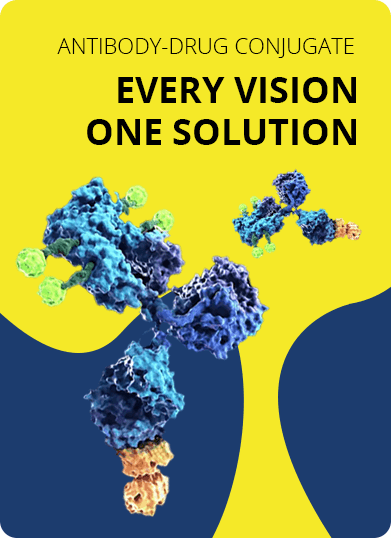- Home
- UTC Development
- Antibody-Enzyme Conjugate Development
- Antibody-directed Enzyme Prodrug Therapy (ADEPT) Development
- Antibody-Alcohol Dehydrogenase Conjugate Development
Antibody-Alcohol Dehydrogenase Conjugate Development Services
Creative Biolabs offers comprehensive customized antibody-directed enzyme prodrug therapy (ADEPT) development services for targeted immunotherapy with optimized enzyme and antibody conjugation strategies.
Alcohol Dehydrogenase
Alcohol dehydrogenases (ADH) are a group of dehydrogenase enzymes that was first discovered in 1937 from Saccharomyces cerevisiae (brewer's yeast). They exist in many organisms and contribute to the conversion between alcohols and aldehydes or ketones with the reduction of nicotinamide adenine dinucleotide (NAD+ to NADH). In humans and many other animals, they facilitate the decomposition of toxic alcohols. They are also involved in many metabolic processes such as the generation of useful aldehyde, ketone, or alcohol groups during biosynthesis. In addition, ADH also catalyzes the opposite reaction which is a part of fermentation to ensure a constant supply of NAD+ in plants, bacteria, and yeast.
MOA of Alcohol Dehydrogenase
Alcohol dehydrogenase enzyme catalyzes the hydrolysis of prodrug alcohol producing the parent drug acetaldehyde. Acetaldehyde (ACH) produced in the physiological metabolism of ethanol can be potentially toxic and immunomodulating. The antitumor activity of a suicide gene system using adenovirus delivered alcohol dehydrogenase (ADH) to convert ethanol to acetaldehyde inside cancer cells has been investigated in vitro and in vivo. In vitro experiments confirmed the toxicity of acetaldehyde to a number of tumor cell lines. Upon alcohol prodrug is administrated into the tumor site, the alcohol dehydrogenase can catalyze prodrug and produce an effective drug (acetaldehyde) immediately to perform its cytotoxic effects.
Antibody-alcohol Dehydrogenase Conjugate-based ADEPT
Since exhibited in 1987, antibody-directed enzyme prodrug therapy (ADEPT) has been treated as a prospective method for cancer treatment. Studies have shown that alcohol dehydrogenase (ADH) could be used as the enzyme in ADEPT to catalyze prodrug and release parent drug to kill the tumor. In addition, both in vitro and in vivo studies have confirmed the antitumor activity of ADH in the ADEPT system to convert ethanol to acetaldehyde inside cancer cells. Particularly, in vitro experiments have confirmed the toxicity of acetaldehyde to a large number of tumor cell lines. What’s more, the ability to the easily administered ADEPT system to produce significant effects on cell proliferation indicates that further optimized development is warranted.
Creative Biolabs is dedicated to helping clients develop antibody-alcohol dehydrogenase conjugate using readily available or customized linkers or direct antibody-enzyme fusion proteins. Our high-quality services and products will contribute greatly to the success of your projects. Please contact us for more information and a detailed quote.
For Research Use Only. NOT FOR CLINICAL USE.

Online Inquiry
Welcome! For price inquiries, please feel free to contact us through the form on the left side. We will get back to you as soon as possible.
